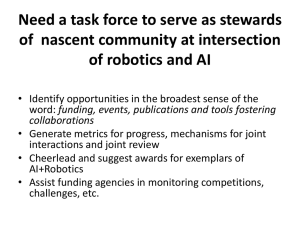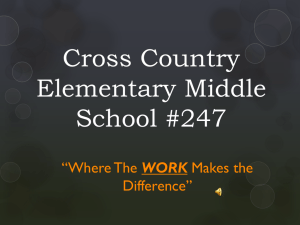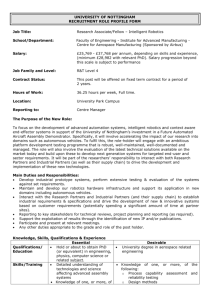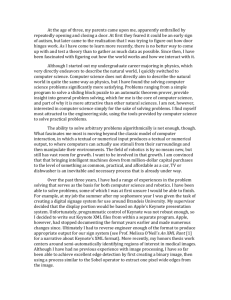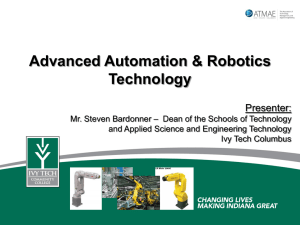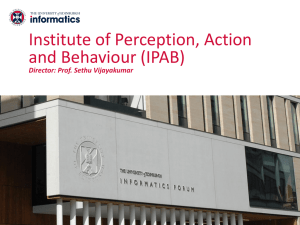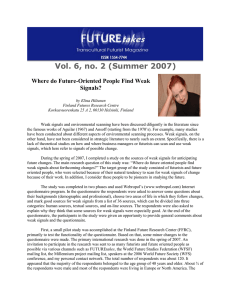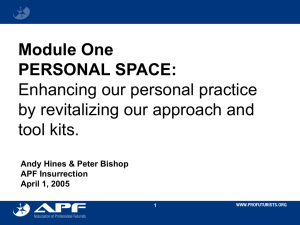Meeting - Center for Curriculum Redesign
advertisement
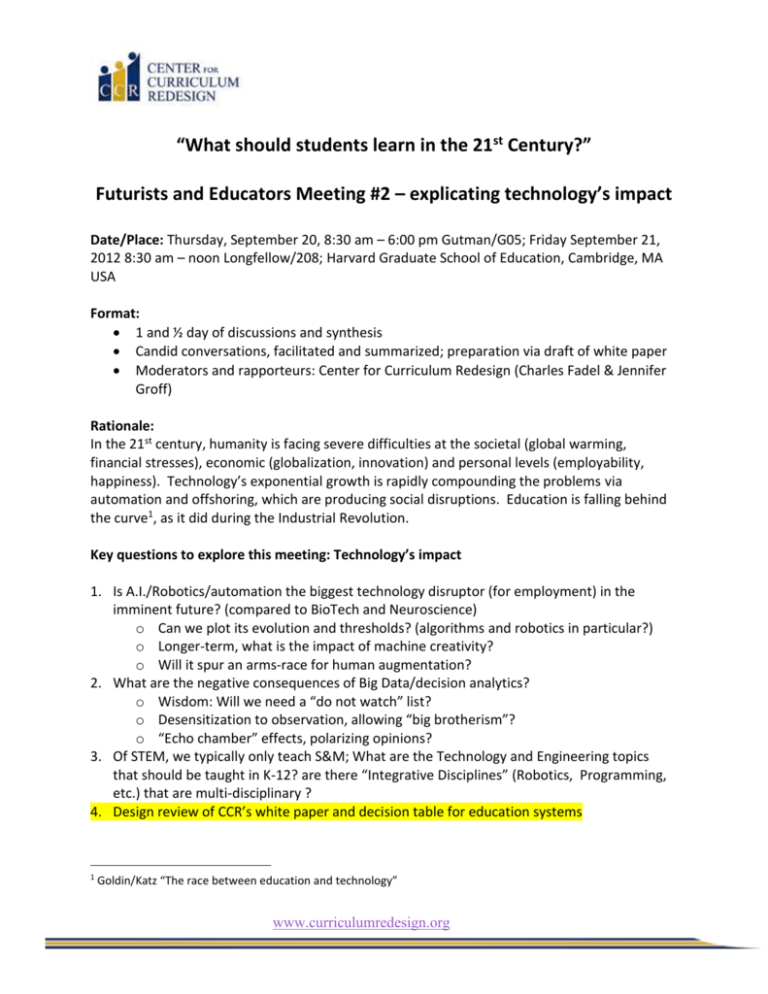
“What should students learn in the 21st Century?” Futurists and Educators Meeting #2 – explicating technology’s impact Date/Place: Thursday, September 20, 8:30 am – 6:00 pm Gutman/G05; Friday September 21, 2012 8:30 am – noon Longfellow/208; Harvard Graduate School of Education, Cambridge, MA USA Format: 1 and ½ day of discussions and synthesis Candid conversations, facilitated and summarized; preparation via draft of white paper Moderators and rapporteurs: Center for Curriculum Redesign (Charles Fadel & Jennifer Groff) Rationale: In the 21st century, humanity is facing severe difficulties at the societal (global warming, financial stresses), economic (globalization, innovation) and personal levels (employability, happiness). Technology’s exponential growth is rapidly compounding the problems via automation and offshoring, which are producing social disruptions. Education is falling behind the curve1, as it did during the Industrial Revolution. Key questions to explore this meeting: Technology’s impact 1. Is A.I./Robotics/automation the biggest technology disruptor (for employment) in the imminent future? (compared to BioTech and Neuroscience) o Can we plot its evolution and thresholds? (algorithms and robotics in particular?) o Longer-term, what is the impact of machine creativity? o Will it spur an arms-race for human augmentation? 2. What are the negative consequences of Big Data/decision analytics? o Wisdom: Will we need a “do not watch” list? o Desensitization to observation, allowing “big brotherism”? o “Echo chamber” effects, polarizing opinions? 3. Of STEM, we typically only teach S&M; What are the Technology and Engineering topics that should be taught in K-12? are there “Integrative Disciplines” (Robotics, Programming, etc.) that are multi-disciplinary ? 4. Design review of CCR’s white paper and decision table for education systems 1 Goldin/Katz “The race between education and technology” www.curriculumredesign.org Invited Participants: Jillian Darwish, KnowledgeWorks foundation Robert Plotkin, Attorney and Author “The genie in the machine” Jurisdiction representatives: Alberta, Massachusetts, Singapore, S. Korea CCR Board of Advisors: John Abele, Boston Scientific; Lori Breslow, MIT; Kurt Fisher, Harvard; Rick Miller, Olin College; Jim Wynn, Promethean; Ross Hall, Pearson; Riel Miller, UNESCO via video; Other distinguished guests: Todd Rose, Harvard; Irene Grief, IBM; Beth Miller, Nellie Mae Education Foundation; Marco Morales, Pearson; Laura Barragan, HGSE student; Albert Meyer, MIT AGENDA Day 1 8:30 – 9:30 Introductions, welcome, setting the stage - CCR and goals – Charles Fadel 9:30 – 10:30 Presentation: Algorithmic & Robotics progress - Charles Fadel Presentation: Education Futures 2020 - Jillian Darwish Break 10:45 – 12:15 Presentation: “Machine Creativity” – consequences? - Robert Plotkin, and conversation Lunch 1:00 – 2:00 Group discussion: Human consequences of “Big Data” 2:00 – 3:00 Group activity: Futurists table review – 2 groups Break 3:15 – 4:30 Group activity: Futurists table review – 2 groups (continued) 4:30 – 5:00 Group activity: review the groups’ results - all participants 5:00 – 6:00 Group activity: What are good examples of Integrative STEM Disciplines? (Robotics, Synthetic Biology, etc.) www.curriculumredesign.org 6:00 – 8:30 Dinner: Red House, Cambridge Day 2 8:30 – 9:15 Aggregate, breakfast, review past day, discuss how to proceed 9:15 – 10:45 Group activity: Futurists table – top section; joint conversation including visualization options Break 11:00-12:00 Group activity: Debate - Can formal systems catch up? What if they cannot ?? Meeting Conclusion For reference: Key questions explored last meeting: see http://curriculumredesign.org/futurists-and-educators-meeting-presentations/ 1. What are the consequences of a VUCA world? 2. Are we factoring in technology’s growth sufficiently? Can we reasonably predict significant inflection points in ICT, Biotech, and Energy – and their impact? 3. What are the demands created by 1) and 2) on education systems? Can they adapt fast enough? 4. How can we harness informal systems? 5. What should be the key aspects of a 21st century curriculum? www.curriculumredesign.org
